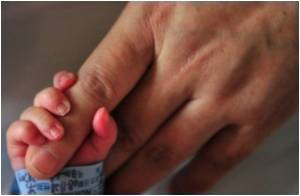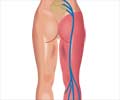Sweet taste solutions such as sucrose can effectively reduce the stress of painful procedures that pre-terms undergo during their NICU stay.

Intensive care is associated with an exceedingly high number of painful procedures. Infants with extremely low gestational ages (GAs) are particularly subjected to these. Repeated pain exposures can affect the normal development of the central nervous system ultimately leading to permanent defects. These ensue in altered pain thresholds and stress responses, defective perceptions, learning and reasoning, behavioral disorders, and long-term disabilities.
Despite the understanding of the aftermath of pain exposure, most of the painful procedures in NICUs are performed without any analgesia. Resorting to drugs for analgesia may have a negative impact on neonatal outcome. Side effects and questionable efficacy are other deterrents forcing a choice of non-pharmacological means of pain relief.
Non-pharmacological interventions (NPIs) or where no analgesia is used for effective reduction of pain for minor to moderately painful procedures include oral sucrose, breastfeeding, non-nutritive sucking, facilitated tucking (FT), kangaroo care, and swaddling. Through mechanisms like provision of oro-tactile, oro-gustatory, and tactile stimulation and promotion of self-regulation, NPIs are capable of reducing infants’ pain responses during painful procedures.
Sweet taste solutions such as sucrose are recommended extensively for pain relief in preterm infants. Sucrose has been shown to be safe and highly effective. Facilitated tucking (FT) is a nursing method in which a parent holds the infant in a flexed position. FT gives the infant a chance to control his or her own body, and provides support. Previous studies have shown that FT has the added advantage of providing parents an active role in the pain care of their preterm infants.
A new study compared the impact of sucrose and FT alone and in combination on pain responses of preterm infants across multiple painful procedures. The effectiveness of these interventions during repeated heel sticks was assessed. Heel stick is a common way to draw blood from newborns. The newborn baby’s heel is pricked and a small amount of blood is collected with a capillary glass tube or a filter paper. It is a minimally invasive and easily accessible method.
The efficacy of oral sucrose as an analgesic during painful procedures thus stands the tests of time. The results are of significant clinical implications for the management of pain in preterm infants. Sweet taste solutions such as sucrose can effectively reduce the stress of painful procedures that preterms undergo during their NICU stay. Facilitated tucking cannot be recommended in a setting of repeated pain exposures.
• Oral Sucrose and “Facilitated Tucking” for Repeated Pain Relief in Preterms: A Randomized Controlled Trial; Eva Cignacco et al; Pediatrics 2012
• Cignacco E, Hamers J, van Lingen RA, et al.Neonatal procedural pain exposure and pain management in ventilated preterm infants during the first 14 days of life. Swiss Med Wkly. 2009;139(15–16):226–232.
Source-Medindia















